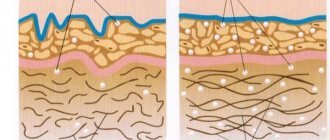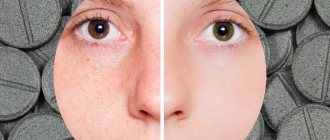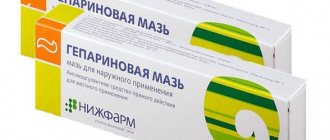Composition of green tea
Green tea contains up to 200 biologically active compounds. So, its composition is quite complex, also because the levels of various ingredients are variable and depend on the location of growth, harvest season and production process.
The main substances in this drink:
- Polyphenols.
This is the largest and most significant chemical compound in green tea, because they contain flavonoids, an important class of antioxidants. True, if there are too many polyphenols, the taste of the drink suffers - the tea becomes too tart and astringent. Therefore, as a rule, green has a lower level of polyphenols than its black counterpart.
- Flavonoids.
We are mainly talking about flavonols such as kaempferol, quercetin and myricetin. These are powerful antioxidants with antihistamine and anti-inflammatory effects.
- Catechins.
Dried tea extract may contain 30% to 40% catechins.
These are the nutrients responsible for the special benefits of green tea. For example, epigallocatechin
is the most active and best-studied of all green tea ingredients and accounts for most of the drink's health benefits.
Epigallocatechin
has been found to be more than 100 times more effective at neutralizing free radicals than vitamin C and 25 times more effective than vitamin E. - Theanine.
This is an amino acid found only in tea. It is this that gives it its characteristic aroma. Catechins and caffeine taste bitter and tart, while theanine tastes sweet and fresh. Theanine stimulates alpha brain waves, calms the body and promotes mental relaxation. It is the interaction of catechins, theanine and caffeine that makes green tea such a delicious drink.
- Caffeine.
It is a plant alkaloid found in coffee, tea and cocoa. It acts as a natural pesticide, protecting plants from certain insects that feed on them.
- Vitamins and minerals.
Green tea contains several B vitamins and vitamin C. Because green tea is processed less than black tea, the vitamins remain intact during the production process of the drink. Other ingredients in green tea include minerals. In particular, aluminum, fluoride and manganese.
Green tea also contains organic acids such as gallic and quinic acids, as well as 10% to 15% carbohydrates and small amounts of volatiles.
Free webinars on anti-aging medicine Learn about the features of the Anti-Age Expert International School, as well as the opportunities for improving your medical practice every day.
The webinar program also includes fascinating reviews of innovations in anti-aging medicine and analyzes of the most complex clinical cases with recommendations that really work. Find out more
How to Prepare for a Cosmetic Procedure
Proper skin preparation is the key to the effectiveness of a green tea mask. First, you need to cleanse your face of various impurities. Even if you plan to make a mask in the morning, you still need to wash your face, because during the night the sebaceous glands have produced a certain amount of secretion, which will prevent the penetration of beneficial substances into the deep layers of the epidermis.
You can increase the effectiveness of the mask by steaming the skin. During the procedure, the pores will open and be ready to accept biologically active substances. The easiest ways to steam the dermis:
- Boil water and pour a few tablespoons of chamomile with hot water. After five minutes, the medicinal herb will infuse. By bending over a saucepan and covering your head with a towel, you can take a quick steam bath for your face.
- Make a decoction of medicinal herbs, let it cool so that the liquid is hot, but not scalding. Soak gauze folded in several layers or a small terry towel with the infusion. Place on face for 5-10 minutes.
- After steaming your face, you can do a light peeling with an exfoliating effect or scrubbing, which will force the skin cells to renew themselves more actively. At this point the preparatory stage ends and you can start making the mask.
Protective properties of green tea
According to recent research by scientists from Newcastle University, regular consumption of green tea may protect the brain from developing Alzheimer's disease and other forms of dementia.
The study, published in the academic journal Phytomedicine, also suggests that this ancient Chinese medicine may play a vital role in protecting the body from cancer.
Specifically, they found that when green tea is digested by enzymes in the gut, the resulting chemicals are actually more effective against key Alzheimer's triggers than the undigested form of the tea.
The digested compounds were also found to have anti-cancer properties, significantly slowing the growth of tumor cells.
Previous research has shown that compounds known as polyphenols present in black and green tea have neuroprotective properties, bind to toxic compounds and protect brain cells.
Benefits of green tea for skin
Antioxidants contained in green tea have an anti-aging effect and can prolong the beauty and youth of the skin, including protecting it from photoaging.
Photoaging due to exposure to ultraviolet rays is the main cause of wrinkles, age spots and other age-related changes on the skin.
Scientists have discovered that green tea polyphenols can slow down these processes. Thus, regular consumption of green tea can prevent some damage to DNA cells caused by UV radiation. Topical preparations containing green tea may also benefit the skin because they have anti-inflammatory, antioxidant, and photoprotective properties.
One study found that products containing green tea extracts improved skin texture and reduced the appearance of fine lines and wrinkles.
An analysis of the benefits of green tea for the skin suggests that it has anti-inflammatory, antioxidant and anti-carcinogenic effects.
Those who suffer from acne can use pure green tea to cleanse their skin. Lotions containing it can help reduce the number of breakouts on your face. In addition, epigallocatechin from green tea significantly reduces skin inflammation, which usually triggers acne.
Another benefit of green tea for acne-prone skin is reducing sebum production.
Reviews
Tatyana: Yes, it’s really good for the skin and making any mask is very easy. The difficulty is to find a good tea leaves that can then be safely used as an ingredient.
Marianna: Ice cubes are my favorite remedy. They perfectly tighten and refresh the skin, in addition, it is a hardening for the face before the onset of winter frost and winds.
Olga: Sometimes I wash my face with the leftover tea from the teapot before going to bed. I have dry skin, so tap water is not suitable, but tea helps me out.
Svetlana: In Japan, tea is not only drunk in incredible quantities, but also eaten and used in home cosmetology. This is the key to the legendary youth of Japanese women. I also follow their example, order matcha, add homemade masks to my food.
Stress resistance
Green tea is also effective in combating stress and anxiety. For example, L-theanine, an amino acid that helps relieve tension, gives it relaxing properties.
L-theanine promotes the creation of alpha waves in the brain, relaxing the mind in stressful situations while maintaining alertness. Every day, researchers are discovering more and more benefits of L-theanine.
It has also been linked to improved cognitive function, reduced anxiety, improved sleep quality and overall well-being.
Scientists believe that theanine may reduce anxiety because it acts on the neurotransmitters GABA, increasing their concentration, which is important for those under stress.
GABA affects the levels of two other “feel good” neurotransmitters, serotonin and dopamine, known as the feel-good hormones. Increased dopamine levels also lead to improved memory and learning ability.
A study published in 2012 tracked the effects of L-theanine and caffeine on mental performance. Participants were exposed to several psychological as well as physical stressors, and they received either placebo alone, L-theanine and placebo, or caffeine and placebo. Research has shown that theanine reduces blood pressure and anxiety.
Moreover, even the caffeine contained in green tea enhances stress resistance. Its relatively small amount (30 to 50 mg per cup) may not cause hyperactivity or nervousness like a cup of coffee. This dose of caffeine keeps the brain active by blocking adenosine, an inhibitory neurotransmitter that acts as a central nervous system depressant. It also increases the concentration of “good” neurotransmitters and the release of dopamine.
Therefore, when under stress, it is better to give up coffee in favor of green tea.
Contraindications and possible harm
The beneficial properties of green tea oil are closely related to its potential harm. It is necessary to refuse to use the squeeze:
- for individual allergies;
- for bronchial asthma;
- during pregnancy and lactation;
- with increased skin sensitivity;
- for serious infectious diseases of the epidermis.
This beneficial essential remedy is not used for children under one year of age. Before using the drug, adults need to do an allergy test - apply a small amount of the squeeze to the crook of your elbow or wrist and see if irritation appears.
Green tea oil cannot be taken internally - it is too concentrated and causes burns to the mucous membranes. If the product is swallowed, side effects occur - heartburn, nausea, vomiting and diarrhea, and symptoms of gastritis may occur.
Neuroprotective properties of green tea
Science has proven that green tea promotes healthy brain function.
A 2011 study of older adults who regularly consumed green tea found less decline in cognitive function than those who drank a placebo. The study authors attributed this improvement to L-theanine's neuroprotective mechanisms.
The 2022 findings showed that it's not just L-theanine—it works with other compounds like caffeine and catechins to help improve cognitive function while maintaining brain function.
There is also evidence that the flavonoids in green tea extracts help increase dopamine and serotonin levels in the brain. These neurotransmitters play an important role in healthy brain function and are associated with feelings of well-being and happiness.
Green tea protects against Alzheimer's and Parkinson's diseases because the amino acids and enzymes in green tea have beneficial effects on brain health, helping to prevent neurodegenerative diseases.
The antioxidant properties of flavonoids in green tea help reduce toxin levels in the brain and also help protect against the effects of Alzheimer's disease.
The antioxidants found in green and black tea help reduce the effects of oxidative stress on the brain.
Additionally, researchers have found that drinking 3-4 cups of green tea per day may also help reduce symptoms of mild depression in older adults.
Autophagy
Autophagy is a vital process during which cells get rid of unnecessary or damaged components. It is known that different types of fasting can trigger it. But there are also aids - such as green tea.
Green tea has a long history of use in traditional Chinese medicine and other parts of the world. It has many health benefits including antioxidant, anti-inflammatory and anti-carcinogenic properties.
EGCG (epigallocatechin gallate) is the major polyphenol in green tea that has been shown to stimulate autophagy in vascular endothelial cells. It also reduces lipid accumulation, the risk of cancer, cardiovascular disease and bacterial infections. All of these benefits are primarily due to autophagy.
In addition, green tea extract can increase metabolic rate by 4%, fat oxidation by 17%, and insulin sensitivity by 13% within 24 hours.
Online training in Anti-Age medicine Learn the intricacies of anti-aging medicine from anywhere in the world. For the convenience of doctors, we have created the Anti-Age Expert online training platform: Lectures from our educational programs are consistently posted here, and are accessible 24/7. Doctors can study the materials as many times as necessary, ask questions and discuss interesting clinical cases with colleagues in special chats
Find out more
Brief conclusions
- Green tea contains up to 200 biologically active compounds, which explains its special health benefits.
- Green tea promotes healthy brain function.
- Antioxidants contained in green tea have an anti-aging effect and can prolong the beauty and youth of the skin, including protecting it from photoaging.
- Green tea is also effective in combating stress and anxiety.
Ice cubes for face
One of the easiest and most effective ways to take advantage of the beauty benefits of green tea is to ice it. To do this, take large-leaf tea, brew it with slightly cooled water and leave for about 5 minutes. The cooled, strained broth is poured into ice molds and placed in the freezer.
Ice can be used before bed and after waking up to tone and refresh the skin. In the morning, if you are short on time, this procedure can even replace regular washing. If the skin is irritated or inflamed, then you should make ice from a decoction of tea and mint.











